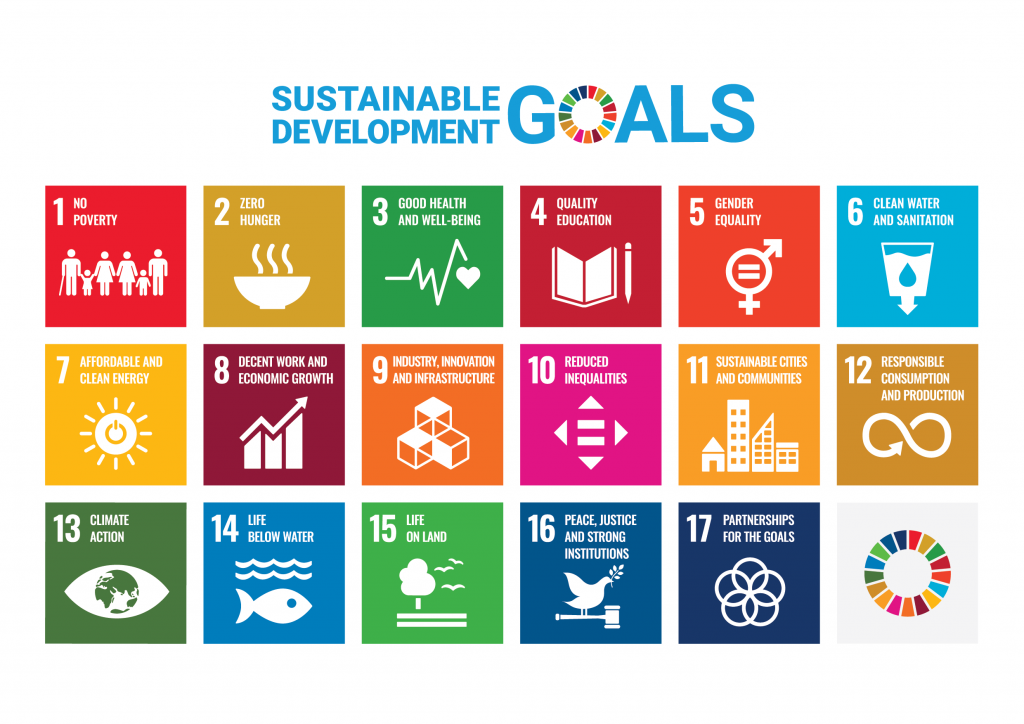CEOS support to the UN Sustainable Development Goals
This is the first in a series of six articles focusing on the UN Sustainable Development Goals (SDGs), and how Earth observation, in particular CEOS, can help in reaching these goals. The series of articles includes:
- CEOS Support to the UN Sustainable Development Goals (this article)
- CEOS Support to SDG 11: Sustainable Cities and Communities (coming soon)
- CEOS Support to SDG 14: Life Below Water (coming soon)
- CEOS Support to SDG 15: Life on Land (coming soon)
- Future CEOS Support to SDG 2: Zero Hunger (coming soon)
The series has been prepared in support of the 2022 CNES CEOS Chair’s Priority #1: Paths to Sustainability, alongside the 2022-23 ESA SIT Chair’s thematic priority on the Sustainable Development Goals and the 2030 Agenda. The work is drawn from the previous SDG ad hoc team, co-lead by CSIRO and ESA.
The United Nations (UN) Sustainable Development Goals (SDGs) are the 17 key goals which form the basis of the UN 2030 Agenda for Sustainable Development. This was adopted by all United Nations Member States in 2015, and provides a shared blueprint for peace and prosperity for people and the planet, now and into the future. The Goals recognize that ending poverty and other deprivations must go hand-in-hand with strategies that improve health and education, reduce inequality, and spur economic growth – all while tackling climate change and working to preserve our oceans and forests.
By its nature, CEOS can provide support to a number of the 17 SDGs through access and provision of satellite Earth observation data. In November 2016 at the 30th CEOS Plenary, in response to the 2030 Agenda for Sustainable Development, CEOS established the Ad Hoc Team on Sustainable Development Goals (SDG-AHT) as a temporary measure to support the Group on Earth Observations (GEO) and other stakeholders in processing the Agenda using satellite imagery. Since 2016, the SDG-AHT has been extended several times to continue this support, and, in 2021, CEOS decided that a ‘Federated approach’ would be the most realistic, efficient, and responsive means for CEOS to continue to play an active role in the 2030 Agenda on Sustainable Development, by facilitating the access and use of satellite data by all countries. The new CEOS SDG Strategy was endorsed by the 35th CEOS Plenary in November 2021, and the implementation of a new ‘federated’ team structure has begun. The Strategy has two layers of roles and responsibilities, with the SIT (Strategic Implementation Team) Chair retaining strategic responsibility for the SDG coordination mechanism within CEOS, and delegating the implementation coordination to the Systems Engineering Office (SEO).
At the strategic level, the SIT Chair will provide overall strategic oversight for the CEOS support to the SDGs, ensuring visibility across CEOS entities via agenda time at regular SIT and SIT Technical Workshop meetings. As a part of it’s ongoing mandate within CEOS, the SIT Chair Team will be responsible for ensuring a structured debate on issues of strategic significance to CEOS, including working to address issues as they arise from both internal coordination efforts, as well as external queries and requests. The SIT Chair will lead the SDG Coordination group which will be also composed of:
- a representative from the SEO (responsible for the implementation of the strategy),
- a representative from the former SIT Chair/SDG AHT co-lead (to ensure strategic continuity),
- the CEOS Executive Officer (CEO) (to provide external interfaces and fostering bridges across CEOS groups),
- a CEOS-GEO liaison (to maintain relations with GEO work plan activities related to SDG matters, including but not limited to the EO4SDG initiative).
At the technical implementation level, the SEO, in close collaboration with SDG Lead experts (former SDG-AHT sub-team leads), will provide implementation coordination ensuring SDG-related deliverables are well defined in the CEOS Work Plan and are progressing and sufficiently resourced. When, and as required, the SEO will reach across CEOS at the working level via its regular attendance at almost all CEOS meetings, and work to raise issues to CEOS leadership, when required.
The Lead experts will organise the work within CEOS, drawing on a pool of identified SDG Experts (formed from the SDG-AHT sub-team members), and existing Working Groups, Virtual Constellations, or Ad Hoc Teams. The leads shall also engage externally (e.g., with the GEO community) to tailor deliverables or ensure a coordination of the response to additional requests per existing CEOS processes. The SEO will be integral in assuring visibility of SDG activities across CEOS via its regular participation in all major forums (e.g. CEOS Secretariat, CEOS Plenary, SIT and SIT Technical Workshops, Working Group and Virtual Constellation meetings, CEOS-GEO Bilateral meetings, etc.).
The new approach aims to foster cross-cutting discussions between existing CEOS entities and Agencies, as well as among key stakeholders, including with the GEO community and external thematic experts. CEOS would like to thank the SDG-AHT for all its work over the last 5 years in providing support to the 2030 Agenda for Sustainable Development, and we look forward to the work the team will produce under the new Strategy.
